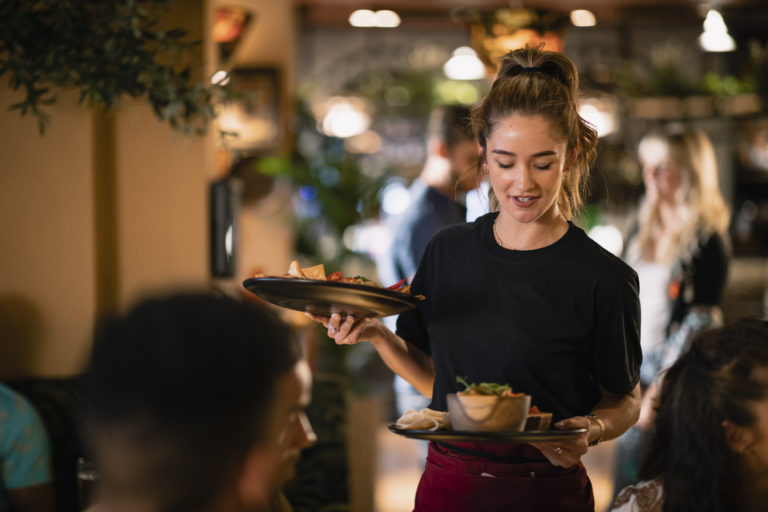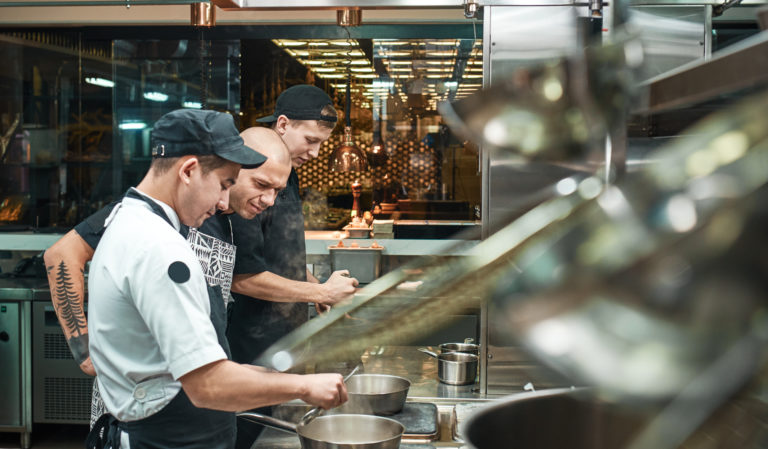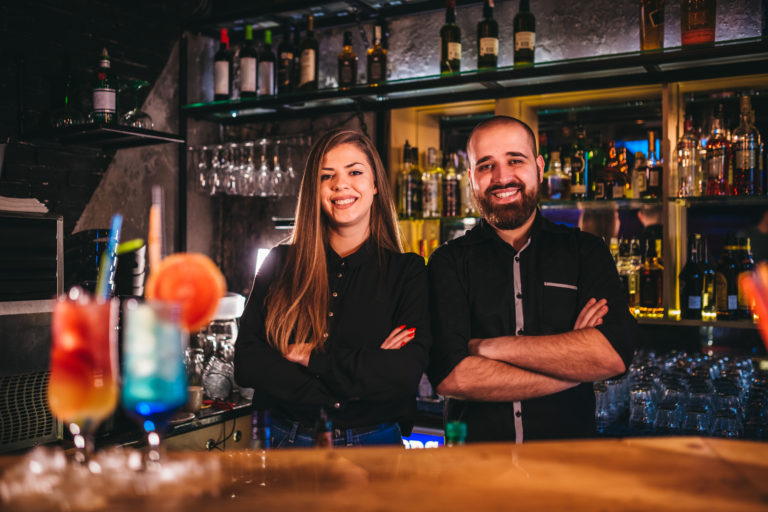How to Build Culture in Your Independent Restaurant or Bar

What is culture?
Next time you visit your local watering hole or favourite restaurant, I want you to try a little experiment. Ask your server or bartender how many different independent restaurants or bars they’ve worked at. Odds are they’ve worked at quite a few, as turnover is extremely common in this industry. Next, I want you to ask them which of those businesses was their favourite place to work and why. What reasons do you think they’ll give? Pay? Hours? Location? I’m willing to make a bet that they say it was the people who worked there and their coworkers. The reality is that restaurant and bar staff spend a great deal of time together, usually in a fast-paced, stressful environment. As The Rail Media points out, culture dramatically affects collaboration amongst team members, the sharing of ideas, representation of your brand, training speed, and overall team efficiency. For example, let’s say you’re a server swamped with multiple large group tables, and one of your tables has an angry customer complaining. At that very moment, your manager steps up to help calm the customer down and handle the situation, enabling you to do what you do best, serve your customers. Not only that, but they actively encourage you to ask for help when you’re feeling overwhelmed and express yourself openly and honestly if any issues come up. As owners, we often underestimate just how large an impact a supportive and attentive management team can have on the rest of your staff. It can make a world of difference.
Diageo’s Bar Academy points out that there are essentially two versions of culture:
First, culture as intended: These are all the values that management sets out from the get go.
Second, culture as experienced: This is the reality check. Do your staff and customers actually feel that your outlined values are upheld and proven through action?
As Entrepreneur Magazine points out, culture is all about:
But herein lies the problem: as an owner, how do you systematically create a culture that encourages customer service, positivity, teamwork, open communication, and accountability for your independently operated restaurant or bar? Everybody loves talking about how important culture is, but how do you actually create it, and more importantly, how do you ensure it’s here to stay?

"There’s another side to the worker shortage argument that’s becoming louder as a new restaurant labour movement gains steam during the pandemic: it’s not that people don’t want to work, they just don’t want to work at a job that underpays, abuses and treats them as disposable."
How do you hire for culture?
Everything starts with hiring and onboarding. As the saying goes, fire fast, hire slow. As an independent bar or restaurant owner, it can be tempting to hire as quickly as possible, especially when you’re short-staffed. Due to the transitory nature of employment in the food and beverage industry, owners, understandably, often hire out of sheer desperation. As Richard Trapunski writes in Now Toronto magazine, the restaurant industry has been experiencing long-standing labour shortages, and it’s not necessarily because of a lack of workers: “…it’s not that people don’t want to work, they just don’t want to work at a job that underpays, abuses and treats them as disposable.”
At Hailo, we advocate for a more deliberate, proactive approach. This may come as a surprise, but if you’re hiring a new bartender, the least important thing is whether they can bartend. Anyone can improve their bartending skills with a little training. The challenge lies in teaching someone to be high energy, helpful, and positive. Rather than hiring someone and trying to teach them to display certain qualities, be more selective in your interviewing and look for the people who already embody what you are trying to promote. Look for character traits that fit your brand and values. Ask the right questions.
Top Tip: For guidance on the right server or bartender questions to ask for the right culture fit, download Hailo Data’s Interview Questions Guide and Interview Candidate Rating Scale.
After finding a new hire that fits your values, it’s time for onboarding. The first few weeks of a new staff member’s employment have a disproportionate influence over their future behaviours. That’s because once the new hire susses out your operation, how you respond to problems, how you treat each other, and how you deal with customers, they get with the “status quo.” Like all habits, the more frequently they follow your procedures and policies, the stronger those habits become. It’s easier to create positive habits from the get-go as opposed to course-correcting later on so take the time to create a comprehensive culture plan, specific procedural instructions, and policies for any potential questions that may come up. You also need to remember to keep hammering these policies home because people forget. As the owner, it can be useful to create a weekly checklist or document that you can use to hold yourself accountable to maintaining the values you’ve outlined in your mission statement.

How do you implement culture?
Ok, after we’ve hired and onboarded our independent restaurant or bar staff, how do we ensure the culture we want to create lasts? The answer is systems, rules, and processes. It’s all about transparency, communication, and accountability. First, you need to define your cultural values. Once that’s finished, you need to map your values to key activities in your business. This will clearly define how your staff ought to act in the variety of situations that will come up in their day-to-day work and give them a framework to look to when dealing with unexpected situations that don’t yet have a guide. How should a staff member react to an upset customer? What about conflicts between coworkers? How can your staff ask for help when they need it? How do you monitor and promote growth? All of these questions can and should be addressed in your cultural framework. Peter De Bruyn of the BCRFA says it’s all about clearly defined roles and expectations. “Depending on the size of the kitchen, people’s roles may change daily, and as long as it is clear what that role is, then they have a greater chance of being successful.”
Lawrence Herzog of Chef Connexion has a few practical and systematic steps you can take to create a positive culture:
First, “formalize the dialogue with practices like regular short check-ins, and encourage honest feedback throughout the team.”
Second, “identify and knock down any barriers.” This could include a brief weekly check-in where each staff member has an opportunity to talk about any places where they feel stuck.
Third, “share responsibility, provide support when something works (and when it doesn’t) and encourage innovation.” People want to feel valued, and they want to feel like their work makes a difference. Providing some open time during weekly meetings, or at the very least creating a suggestion box can go a long way in validating your team’s ability to express themselves.
Jeff Stone writes in Modern Restaurant Management: “establishing a core culture team of star employees who live and breathe your culture – and have them be the constant reminder to their peers.” You could also have one dedicated culture advocate on each shift in your restaurant or bar to monitor how well your team adheres to your values. They can also be responsible for monitoring and rewarding positive behaviours staff have taken that exemplify what you are trying to promote. “You can establish a simple reward program where each week or month, one employee gets a small reward for exemplifying your values. This can be as simple as a free meal on their next shift, parking close to the door for the week, or a $5 dollar gift card for coffee. In addition, free recognition should also be given daily, even if it is just a shout-out to an employee “caught in the act” of living the culture. “Great teamwork for running those salads Alex”, or “Great customer service on table seven Laura” goes a long way in reiterating your values and boosting morale – and it’s free!
"Establish a core culture team of star employees who live and breathe your culture – and have them be the constant reminder to their peers."

What changes can you expect?
As excited as you probably are to get going, it’s important to remember that building a unique and vibrant culture for your independent restaurant or bar is going to take time. Behaviour change is hard. The Foodable Network points out that when it comes to group behaviour change, you can expect Tuckman’s four stages of group dynamics to come into play. These are:
- Forming: You build your list of values and cultural priorities, put together your new culture team, create a framework, and implement a new policy. At this point, everyone seems to be getting along and likes the ideas.
- Storming: “Everyone’s opinion about the new culture starts coming out. There is dissension among the team. If unchecked, this dissension could easily turn into the team running the restaurant. At this stage, your commitment will be questioned over and over. The best advice is to stay focused on the end result and don’t let the turbulence throw you off course.”
- Norming: The team starts to accept your new policies and actually acts in accordance with them. They begin to hold each other accountable to the framework and catch each other when they slip up.
- Performing: The team has fully integrated the changes you set out to make. Functioning at a high level, they have adopted and embraced the new culture. They are living and breathing your values on auto-pilot.
When implementing a new culture plan for your independent restaurant or bar it’s important to remember to add your own unique spin. In order for your staff to buy in to the values and actions you’re trying to encourage, they actually need to believe in them or at least understand why they are important to you. Think of ways you can include your team in cultural decisions in as many steps along the way as possible. Culture is tough. It’s one of those intangible things that we all understand at a fundamental level but struggle to describe and create. Hopefully, after reading this, you feel like you have a pragmatic, and actionable next step to realizing the vision for what your independent restaurant or bar could look like. It’s all worth it in the end.
"If your restaurant is not attracting the caliber of talent you want, it’s time to look in the mirror and ask yourself, “Am I creating a culture where my team can thrive?”
Kyle Tweter
Learn more with Hailo Data
Need help with your bar or restaurant? Reach out to us to learn more how Hailo Data can save your business time and money.
"*" indicates required fields
1574 West 6th Avenue
Vancouver, BC
V6J 1R2
